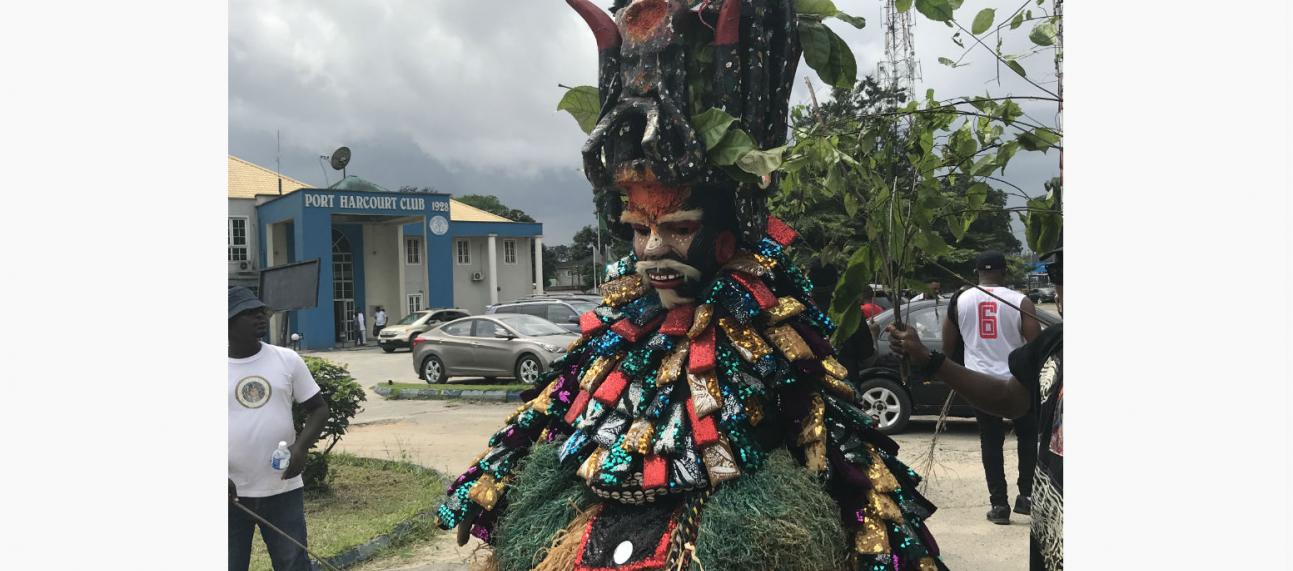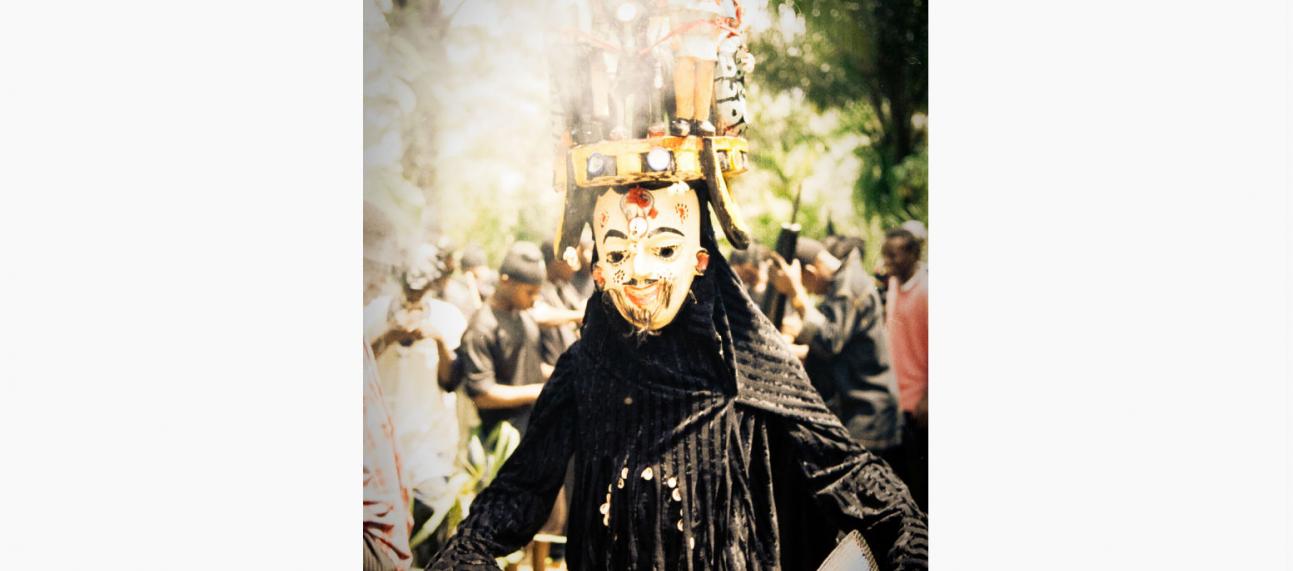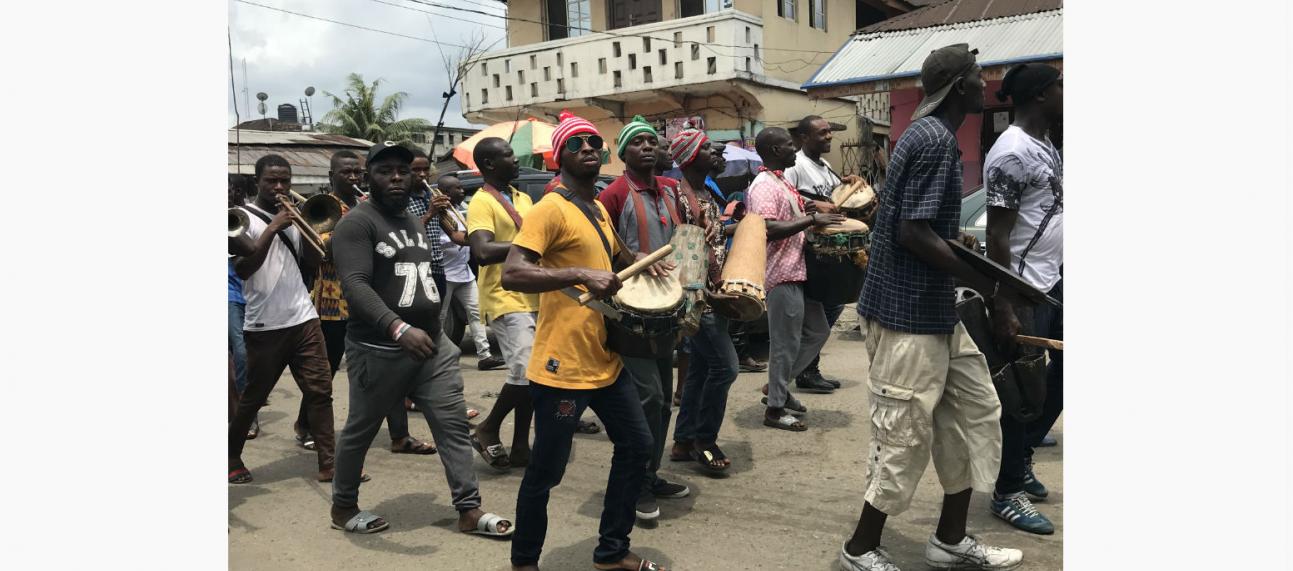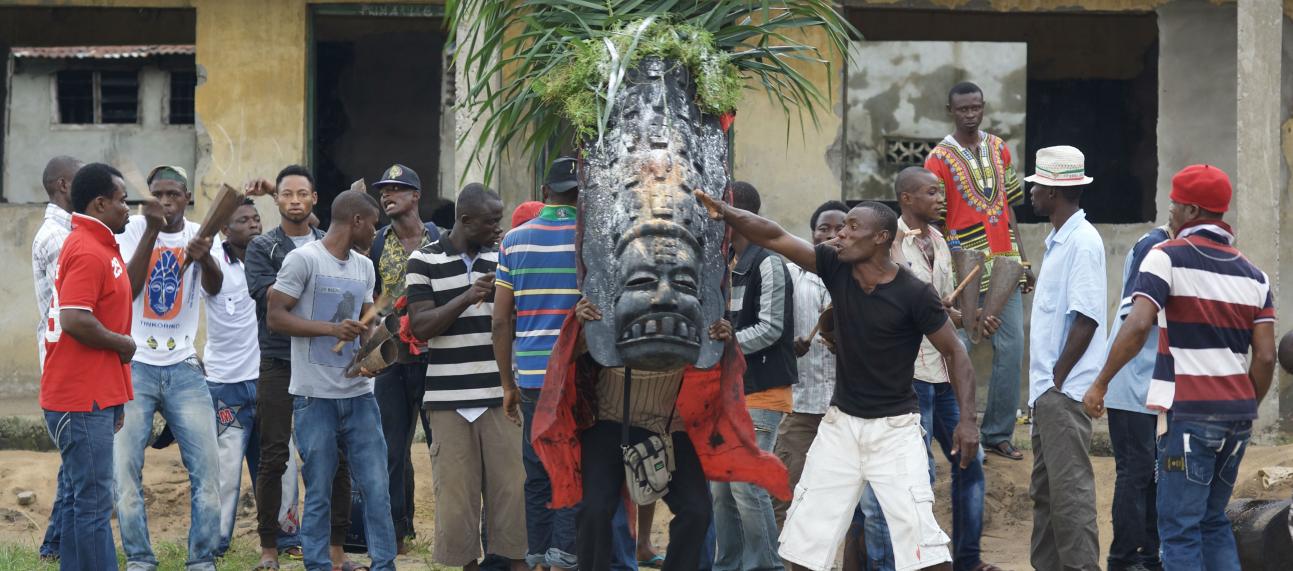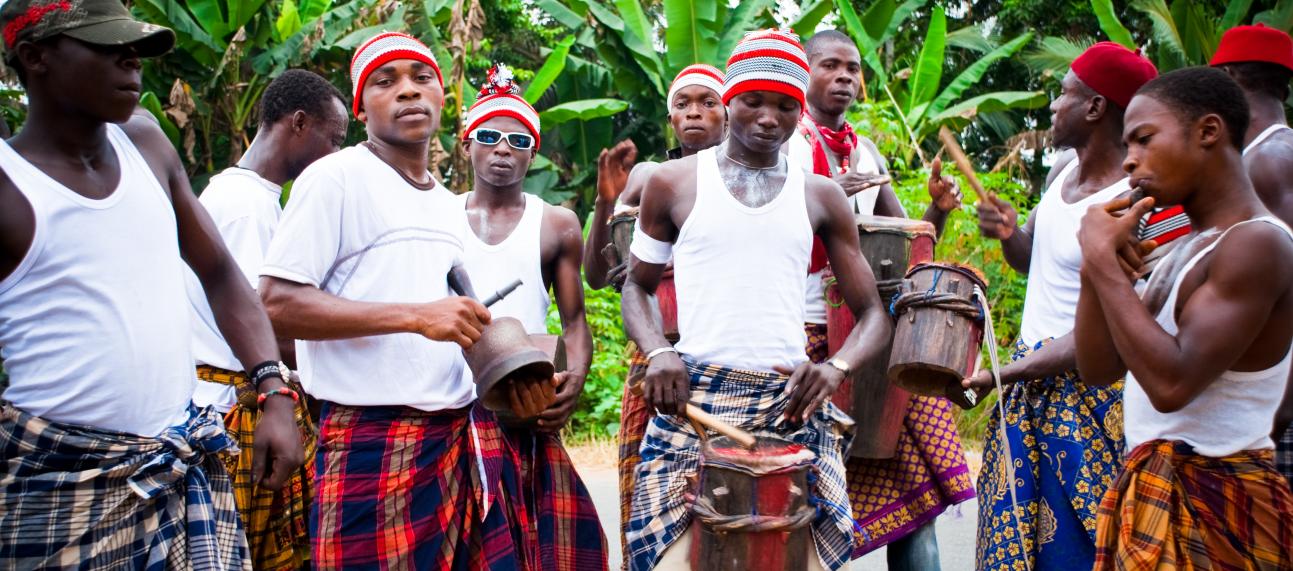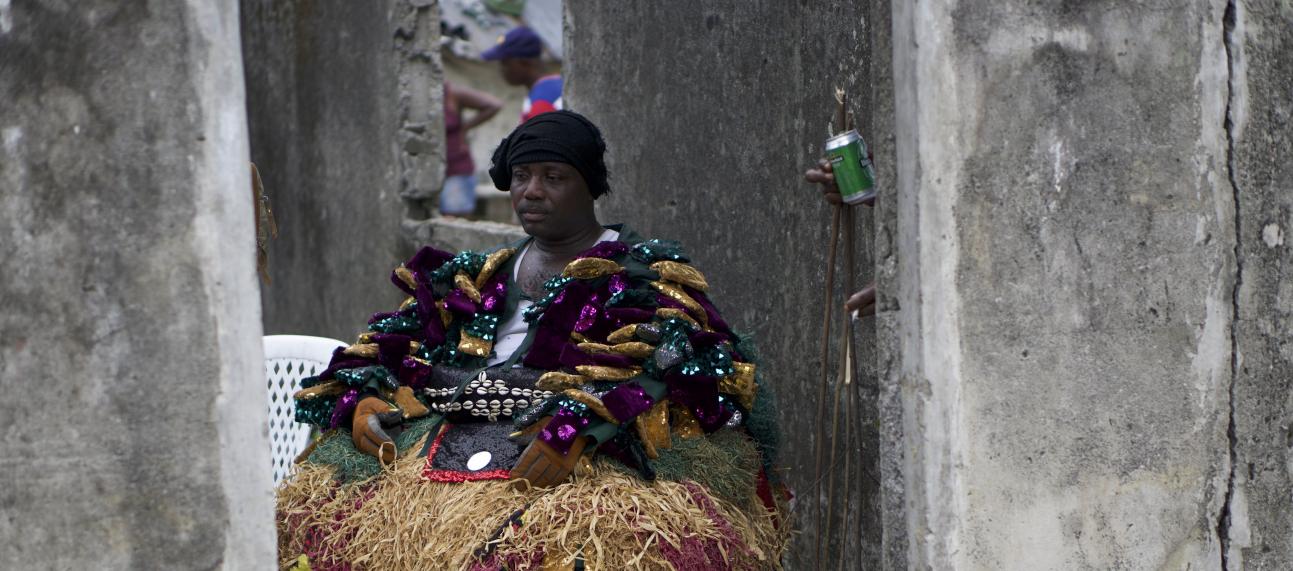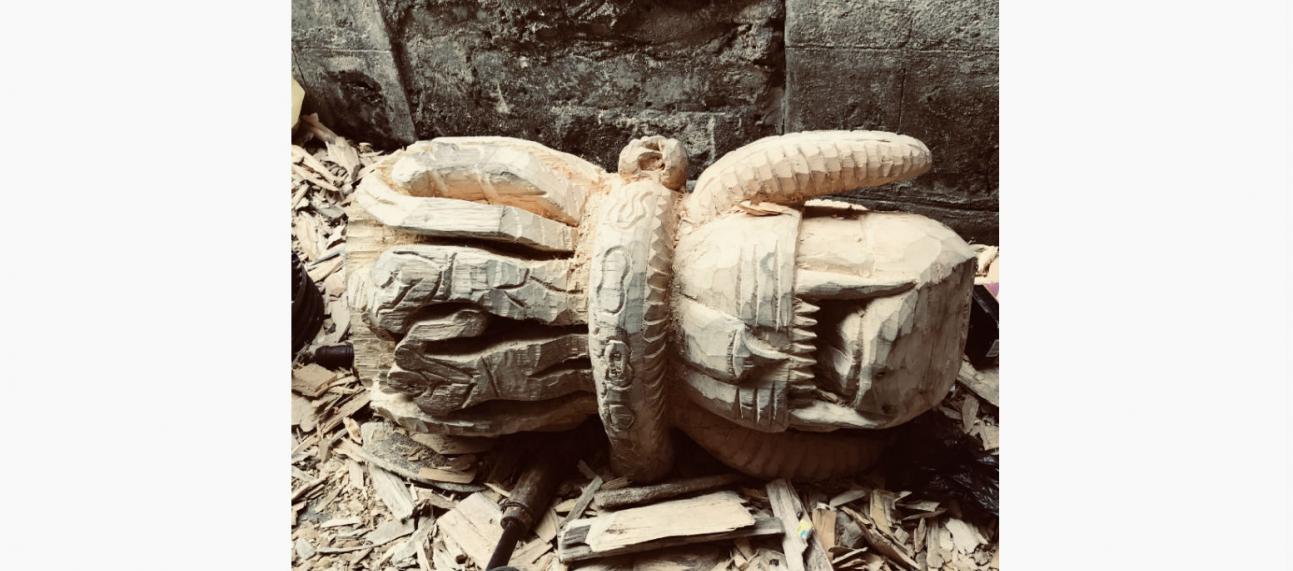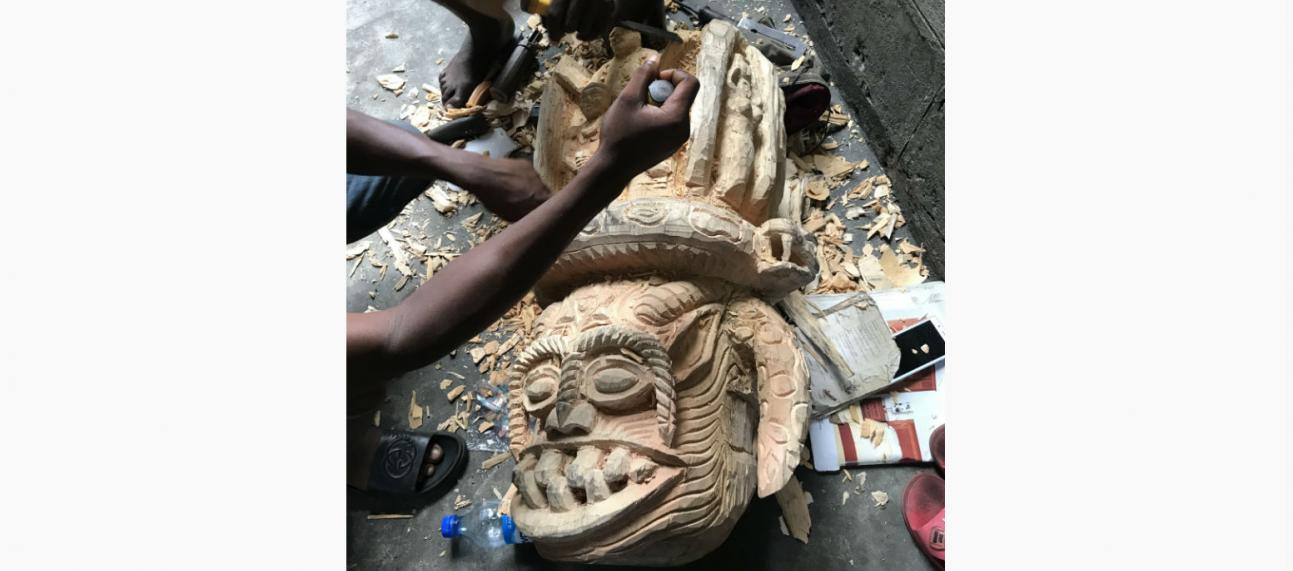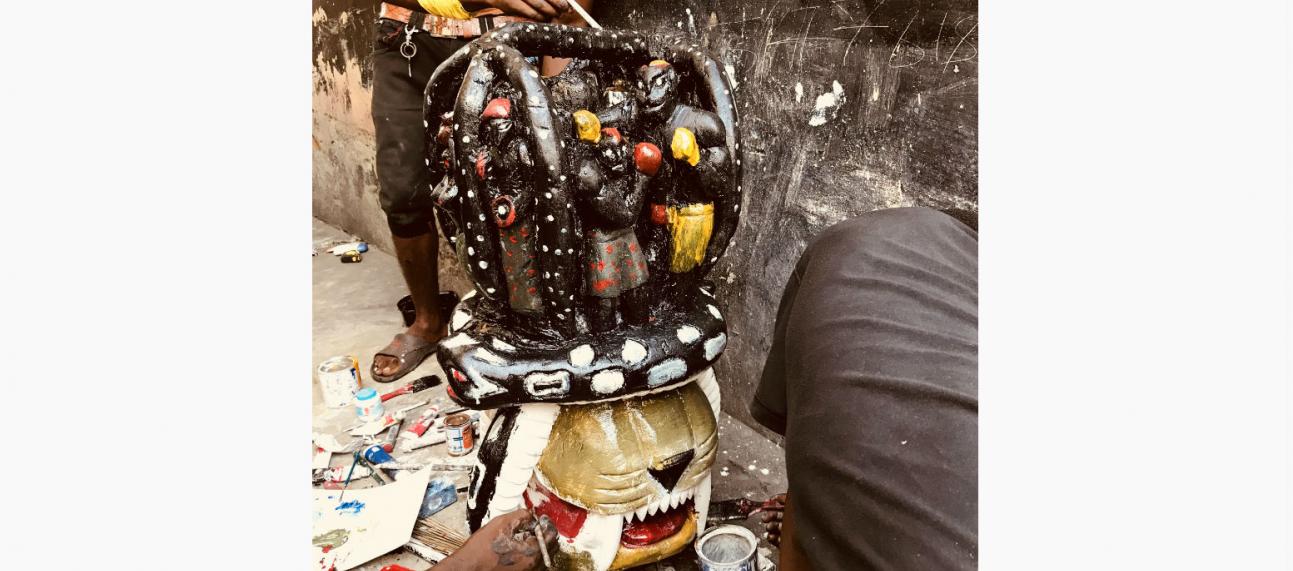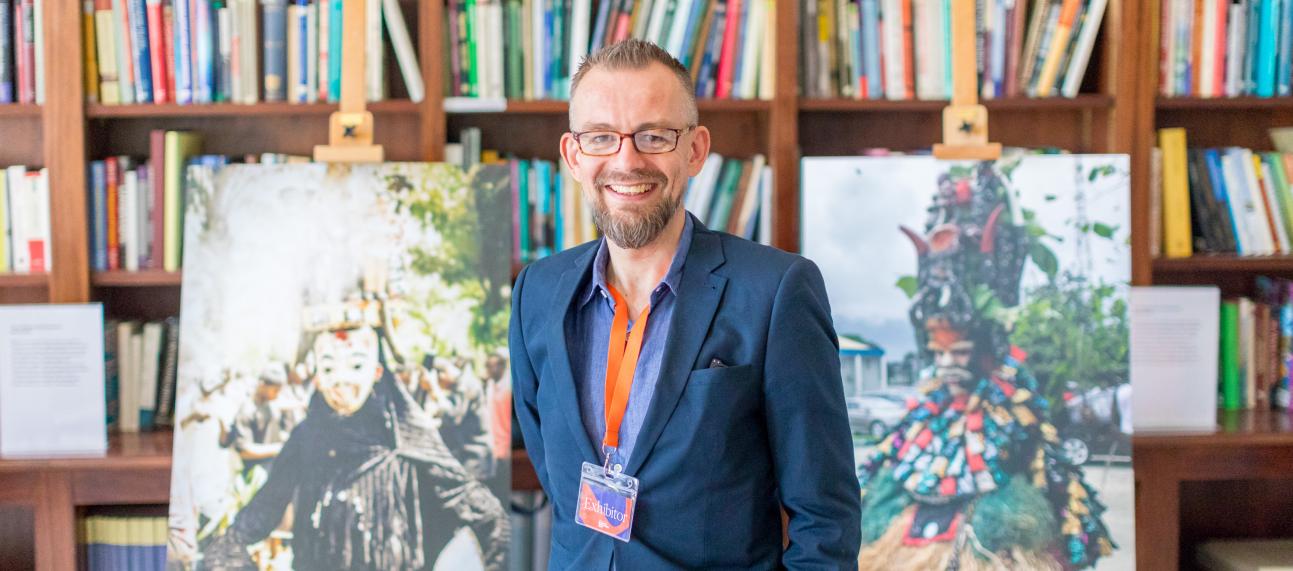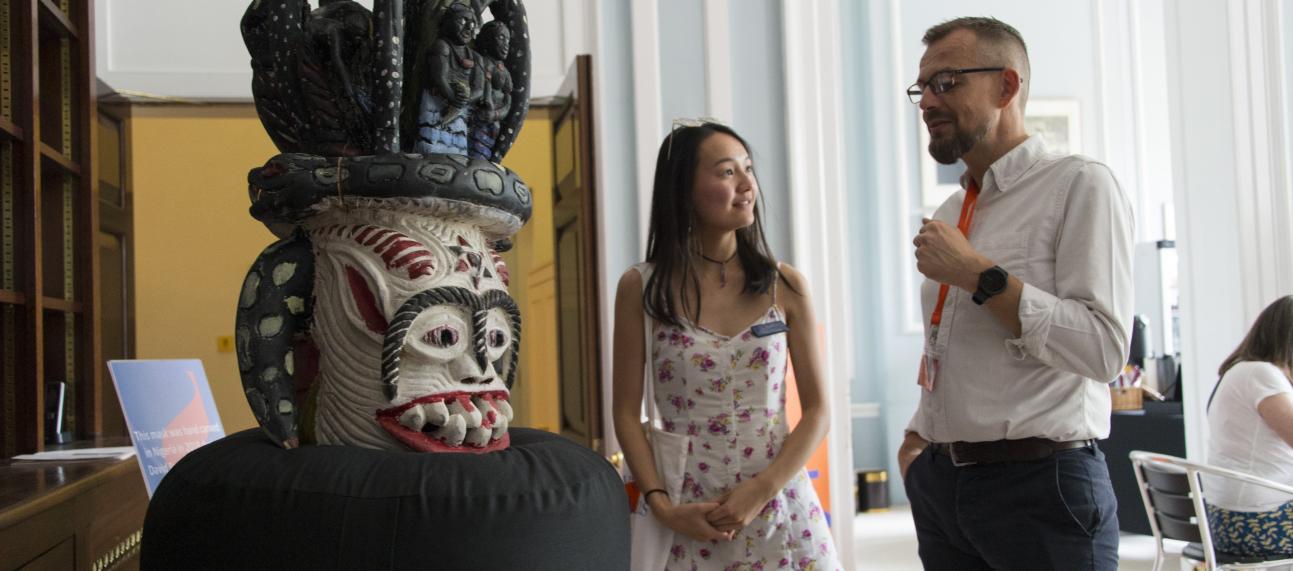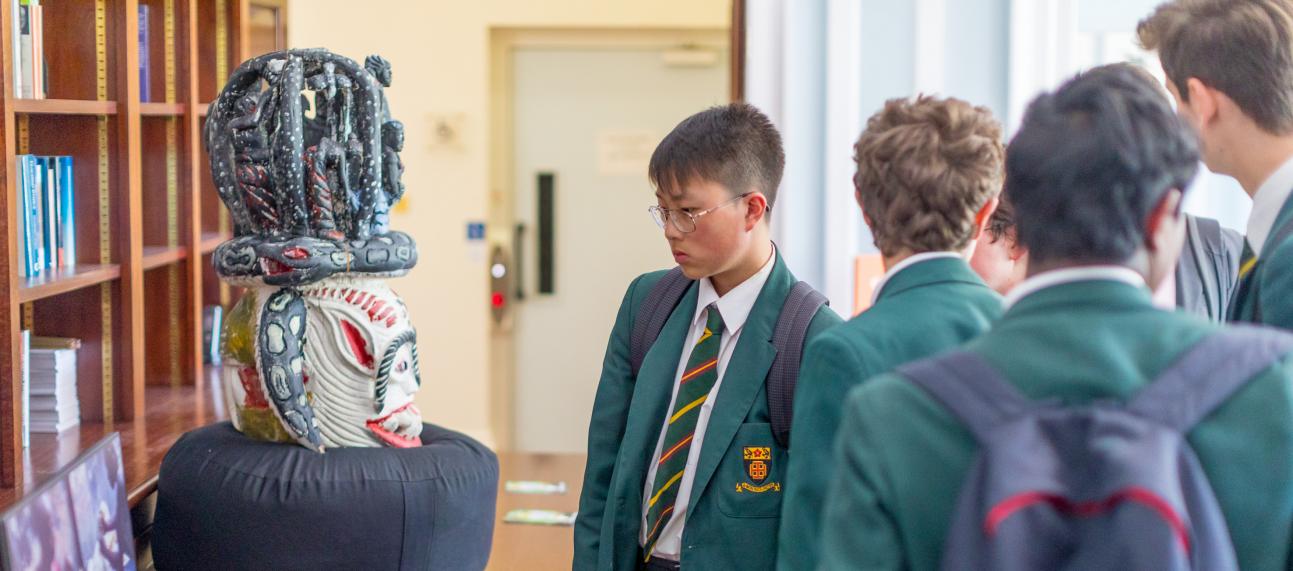Militant Masks: Youth, Performance and Insecurity in Nigeria
Prof David Pratten
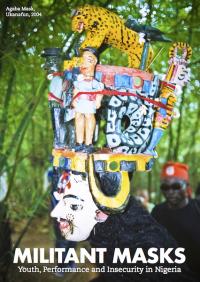
The focus of my contemporary work has been to study the politics and performance of youth as a marginal category in the context of post-1999 democracy and insecurity, and has explored the politically ambiguous social mechanisms through which young people articulate claims and rights and engage with the postcolonial state.
This research has focused on the persistence of secret initiatory cults in the mobilization of young men and the coding of youth as a political category in the emergence of a new cult known as Agaba.
This project narrates the historical trajectory of the agaba masquerade as it has been adopted and adapted by youth across the Niger Delta region since the Civil War (1967-70). Banned in the 1980s it occupies an ambivalent space today – at moments it is a key part of civic celebrations such as Independence Day, and is a feature of popular culture in its ‘gyration’ music. In other moments it is linked to drugs’ trafficking, shadow political networks and militant violence The research explores how the mask slips from an ethnic designation to a generational one, how the mask’s history indexes the violent contours of the Nigerian petro-state, and how the mask moves across artistic registers in literature, music and art.
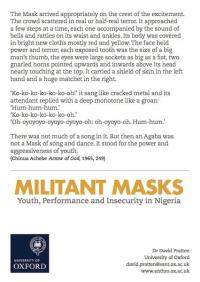
Along the way agaba encounters Chinua Achebe and James Bond, an Oscar-winning documentary and the latest videos of Flavour; agaba meets the highlife music of Rex Lawson and the hip hop of Notorious BIG, and is carried by champion boxers and militant warlords. Its trajectory plays across an arresting audio-visual history and is itself a constantly changing and improvised form.
This project, based on research in based in Ukanafun LGA, Akwa Ibom State, and in the cities of Calabar and Port Harcourt, narrates a story that gets behind the stereotypes of violence in the Niger Delta and explores creativity, cultural exchanges, and political critique. While the performances and aesthetics of the masquerade are bold and striking, the songs that are rehearsed, often in pidgin English, are witty, laconic laments that reflect on the insecurity of life for marginal young men the oil-producing region, and offer a profound political critique of the Nigerian political economy.
Ukanafun Base Boys, August 2004.
Area United, Port Harcourt, April 2018
The ID Boys, Calabar, August 2015
Ukanafun Base Boys, January 2009.
Area United, Port Harcourt, April 2018.
- British Academy/Leverhulme Small Research Grant, Militant Masks: youth, performance and insecurity in Nigeria, 2015
- ANR (French National Research Agency), (ref: ANR-10-SUDS-0009) Case study on xenophobic exclusion, 2010.
- British Academy Small Research Grant Youth, livelihoods and violence in Nigeria’, 2007.
- Nuffield Foundation Social Sciences Small Grant ‘Democracy and Disorder: Youth, Vigilantes and the 2003 Elections in Nigeria,’ 2003/04.
Mgbedike Mask Carving
In April 2018, working with members of Area United agaba group and local carver, Tonye Agala and his apprentices, a new Agaba or Mgbedike mask was carved as part of this project.
Understanding the Niger Delta’s agaba masquerade tradition
The British Academy Summer Showcase - billed as ‘a free festival of ideas for curious minds’ – was a free, public event that took place for the first time over two days and one evening in June 2018. The Showcase was attended by 1700 visitors and presented 15 exhibits from current and recent British Academy award holders, including Militant Masks.
Blog: https://www.thebritishacademy.ac.uk/blog/understanding-niger-delta-agaba...




